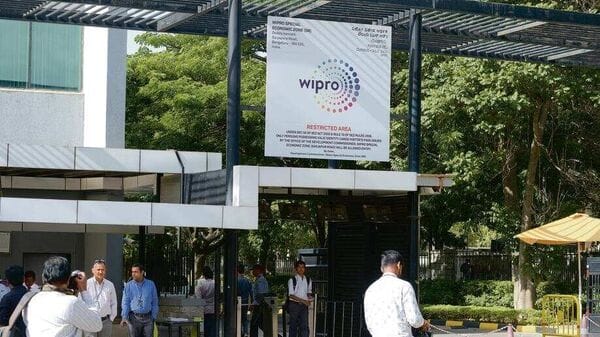Moonlighting is neither ethical nor a work trend
 Premium
PremiumWorkers hit by hard times may have got tempted to take on second jobs while working from home. Reading this aberration as a sign of a ‘gig economy’ future would be even less tenable
 Premium
PremiumWorkers hit by hard times may have got tempted to take on second jobs while working from home. Reading this aberration as a sign of a ‘gig economy’ future would be even less tenable
Listen to this article |
Shots have been fired. Wipro has sacked 300 employees it found guilty of working for its competitors, drawing a hard line in the ‘moonlighting’ debate. Only a few weeks ago, chairman Rishad Premji had made it clear what he thought of the practice: “It’s cheating, plain and simple." Information technology (IT) companies Infosys and IBM agree; the former sent a stern email to employees asking them to desist from “two-timing" and double lives. Some senior executives like Tech Mahindra’s C.P. Gurnani have taken a softer line, leaving it to employees to decide how to use their spare time if work is unaffected. For our tech companies, this is as straight as it gets. An employee and employer are bound by the terms of a mutual contract. And a full-time employee doing a side hustle for a rival is an unacceptable violation of that deal. That’s fair enough. Not just job relationships, our very economy runs on the trust that contracts will be honoured—or else, someone must pay. IT firms often work with client data that must be kept secure and employees who moonlight could also create a larger credibility risk for them.
But how did we get here? Companies having to crack down on hundreds of their staff found in ‘dual employment’ is clearly a post-covid phenomenon. The workplace is now mobile, atomized, in our laptops and smartphones. It’s not only about location having gone variable; the adoption of work-from-home has frayed the eight-hour work shift. During lockdown, employers were happy to let those boundaries blur as long as work got done. It wasn’t the hours anyone clocked that mattered, but the tasks that got done. Taking that logic to its conclusion, some employees might have begun to rationalize a second gig as an extra earner that hurts nobody. When times are tough, the ethics of split loyalty can look like shades of grey. So what kind of hustle culture drives workers to hold down two jobs? Tech workers at the entry level—all of the 300 odd let go by Wipro had less than three years’ experience—may have reason to feel cheated themselves. An open secret of the IT sector, which thrived even as other economic engines sputtered during the pandemic, is that salaries for new sign-ups have stayed scandalously low. And so, in the last couple of years, as demand for software work boomed globally, suppliers of work anxious to make ends meet may have spotted a snappy solution in the expedience of two jobs.
Some argue that the indignation of employers is being outmoded by an emerging gig economy, one that would usher in a bustling market for specific tasks—rather than job roles—to be assigned to individuals through price bids. Its advocates expect workers to gain more power as economic agents this way than by being loyalists or ‘cubicle farm’ captives, but this view overlooks how work would still be directed by a big asymmetry in clout, so a gig economy need not turn out to be more worker-friendly. After all, there’s a reason for the premium we place on job security, which has been found to deliver both superior value addition and better job satisfaction. Gig-work advocacy also ignores the fact that while a business can gain from staffing that isn’t a fixed overhead, it can’t merely be the sum of discrete and robotic workers if it must rely on its people to brighten its odds of success. Corporate values and mission alignment matter in setting one company apart from another. But employers must not forget to combine this special appeal with attractive remuneration.